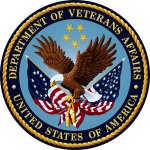Nephrologist Amarillo VA Healthcare System
Job at a glance
Job Description
DEPARTMENT OF VETERANS AFFAIRS
VA AMARILLO HEALTH CARE SYSTEM
(NEPHROLOGIST) SCOPE OF PRACTICE
SPECIALTY SERVICES
SCOPE OF PRACTICE:
All providers who are granted privileges in VA Amarillo Health Care System are allowed to provide, deliver and/or interpret professional services (within the scope of their license) in all care settings. It is understood that the requested privileges (as marked below) represent only the requested privileges in the areas in which the applicant believes he/she meets the applicable standards of education, training, Board Certification and demonstrated proficiency.
CORE PRIVILEGES:
All (Nephrologist) who are granted privileges to provide, deliver and/or interpret are hereby granted the following core privileges:
Examinations—Evaluates patients by examining thoroughly. Appropriate clinical, laboratory and other pertinent data is obtained to determine care the patient is provided.
Diagnosis--Interprets and evaluates clinical data for the purpose of determining diagnosis and clinical status.
Therapeutic Ability--Prescribes appropriate and timely treatment; applies indicated therapeutic procedures; recognizes and assesses changes in behavior, symptoms, signs, and other pertinent facts about the patient and modifies plan of treatment when indicated. Recognizes own capabilities and limitations.
Effectiveness in Emergencies--The incumbent is readily available; and quick in recognizing emergency situations, and taking timely necessary action.
Patient Management--Develops and maintains rapport and gains the confidence of patients and relatives through competence and interpersonal skills to the end that patients and others are informed participants in the treatment effort.
Consultations and Specialty Skills--Recognizes the need for consultation and utilizing facility or clinic specialty skills in diagnosis and treatment.
Record keeping--Physical and other examinations and changes in patient's status are promptly and completely recorded. Unusual incidents are promptly reported to the appropriate official. Clear, accurate, and adequate clinical records are kept current and completed at time of discharge. The treatment plan is clearly stated. The physician is fully knowledgeable of and utilizes the Computerized Patient Record System. All progress notes, orders are to be completed and signed daily.
Encounters - All encounters to be completed daily by physician as this affects hospital funding.
Consults Closure: Consults are required to be completed by the provider at the time patient has been seen.
EDUCATIONAL ACTIVITIES
Educational responsibilities usually involve either "teaching" or ''coordination.'' Some positions may involve both or cut across the elements or functions.
Teaching and Monitoring--Covers both the individual and group learning experiences where one serves as the learning facilitator in the role of a mentor or teacher for residents, trainees, or employees. As a mentor, plans and guides educational activities to meet the individual needs of the learner within the resources available. Counsels
2
learner on professional/occupational goals as they relate to education activities. Encourages active participation on the part of the student. Actively solicits evaluation from students of teaching and educational experiences. Assures that content is based upon student and patient care needs, up-to-date and at the appropriate level for the audience. Develops courses, lectures or programs based on preestablished objectives. Employs learning resources and media (library, film, slides, etc.) in an appropriate manner.
Coordination of Educational Programs-- Assesses educational needs for both continuing and basic education programs, using audits, self-assessment surveys, morbidity and mortality data, and new developments in health care. Establishes and maintains procedures for professionals to self-assess and partake in needs assessment procedures. Selects needs for which education/training is the most cost-effective intervention.
Establishes educational objectives consistent with both the educational needs and available educational resources and identifies appropriate learners.
Mandatory Training – completes all mandatory required training yearly.
